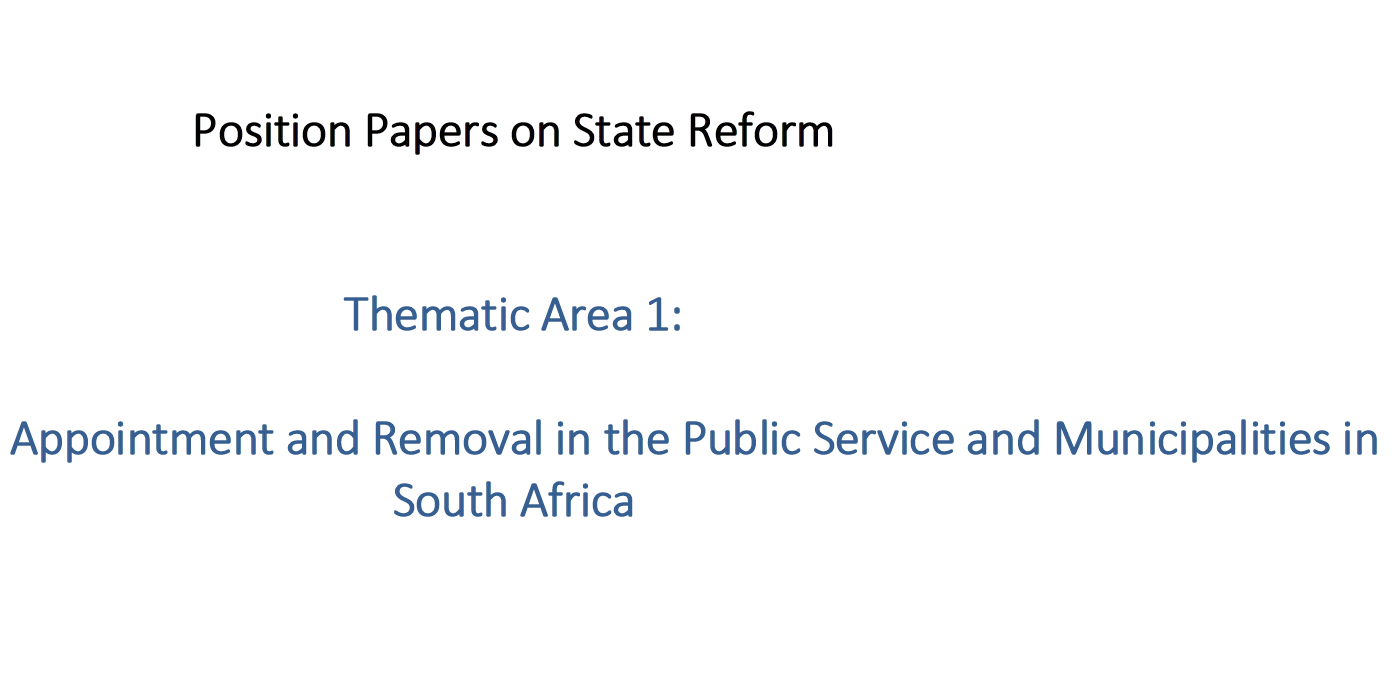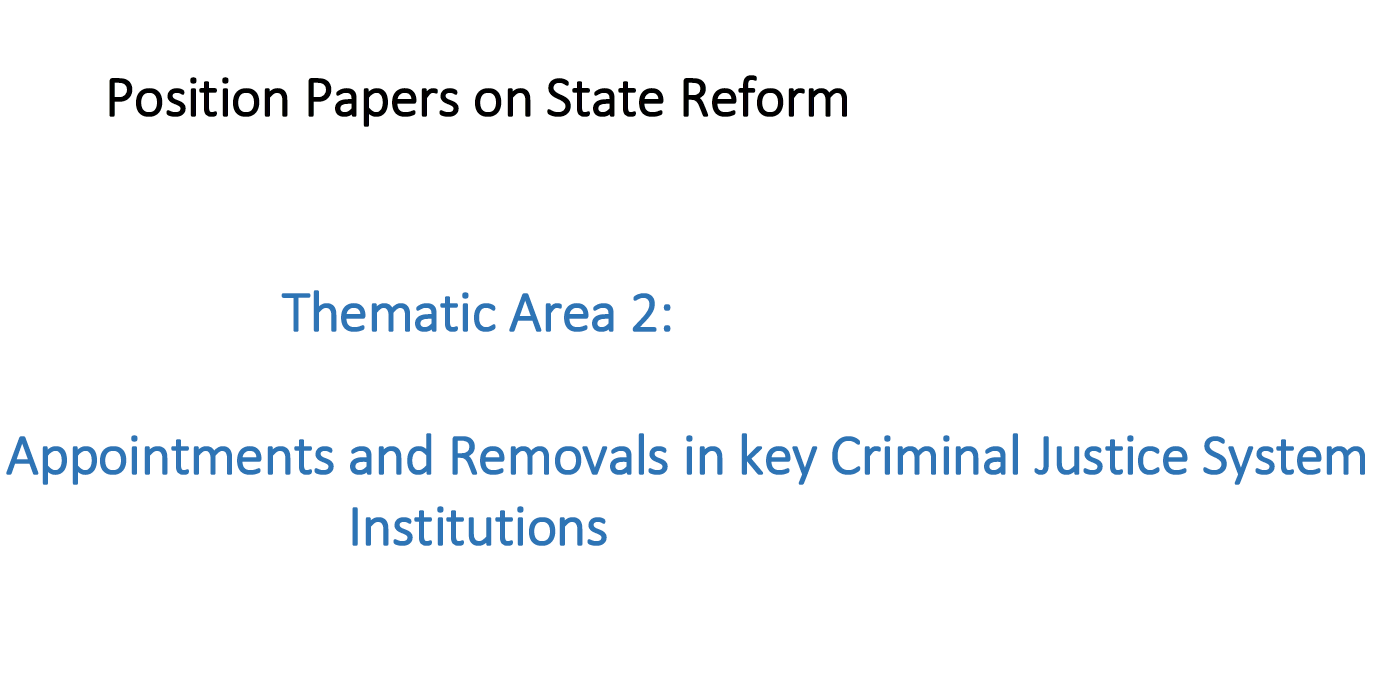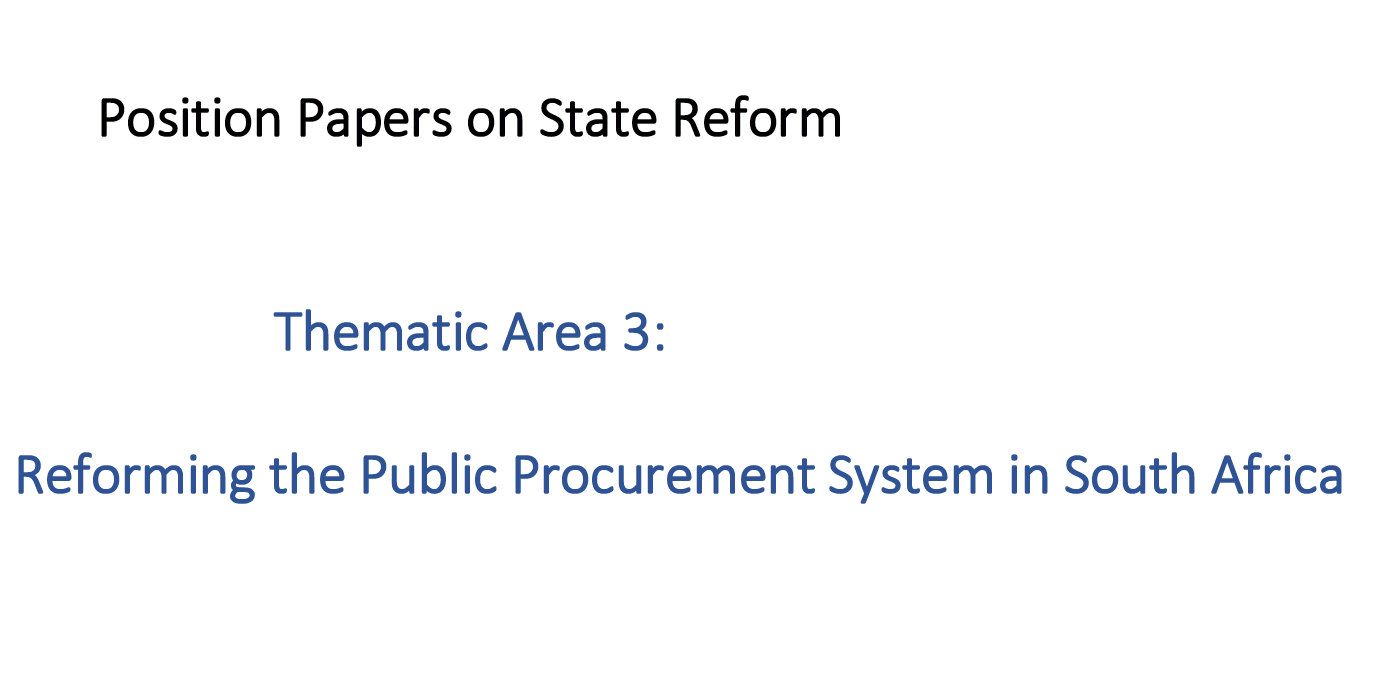Position Papers on State Reform
#FixTheState
This provides a description of the three position papers that argue for crucial reforms of the South African state. The goals of these reforms are to realise a rigorous reduction in corruption and in the influence of patronage in South African politics, while improving the political responsiveness, efficiency, and the developmental effectiveness of its public administration.
In his 2019 State of the Nation Address, the President recognised that “our greatest efforts to end poverty, unemployment and inequality will achieve little unless we tackle state capture and corruption in all its manifestations and in all areas of public life.” The President further committed government to working with South African society in the fight against these threats and in strengthening the state’s ability to promote its democratic mandate and address the needs of the people. These are significant commitments. They are indicative of a widely evidenced momentum in government, and in society in general, in favour of reversing the erosion of state institutions and reaffirming the values and aspirations of the anti-apartheid project. These position papers are aligned with that momentum. They aim to contribute to the development of an overarching strategy for state reform. They do so by underlining a set of concrete institutional adjustments that aim to achieve values of integrity, democratic control, and administrative effectiveness. By identifying these specific interventions, these proposals aim to support and coordinate reform-minded politicians, public servants, and civil society actors around a targeted reform movement.
South Africa’s approach to anti-corruption has emphasised the need to select more ethical leaders and to mobilise the citizenry for accountability. While these are important concerns, no country has transcended an episode of expansive corruption and patronage politics through such efforts alone. Rather, modern governance is about designing institutions in a way that minimizes reliance on the good character of leaders and citizens. It recognises that well-designed institutions ensure good people, that it is the institutions as they are that corrupts them.
Some South Africans focus on economic growth and equality, as self-standing values and as a means to reduce corruption and patronage. Undoubtedly this is necessary, but these arguments elide the extent to which corruption and patronage act as a constraint on economic advance. In contemporary conditions of globally competitive capitalism, a professional and appropriately insulated public administration has been a necessary condition for rapid development and effective redistribution.ii In fact, state-building and economic development are entangled. Insulated public administrations, an important boon to economic development, can only be sustainably founded on a reliable commitment to distributing the benefits of growth to everyone. South Africa has never closed this circle.
Radically reducing corruption and patronage, establishing the official professionalism and flexibility required by the developmental state, these goals necessitate constructing a public administration that is insulated in the right sorts of ways from political interference and factionalism. In this respect South Africa should emulate all countries that have
successfully overcome political crises induced by corruption and patronage. As long as politicians retain effectively unrestrained powers over appointment and promotion, opportunities and incentives will favour pressures to violate the rules in service to narrow political and private interests. Powers of appointment and promotion must therefore be checked and balanced, through the assignment of significant duties in the process to institutionally independent administrative commissions. In the same movement rules must be loosened, to enable professional public managers to perform the policy-directed, but technical function of improving South Africa.
The first position paper, on reforming the processes for appointments and removals in South Africa’s public service and municipalities aims to ensure political control over appointment and removal processes, but simultaneously to make it difficult to manipulate appointment and removal in such a way as to build illicit or inappropriate political and personal networks in public administrations.
The second paper on appointments and removals of senior leaders in the criminal justice sector argues that the legal framework that governs the appointment to and removal of senior personnel from key institutions of the criminal justice system with investigative and prosecutorial mandates has contributed to a blurring of the political-administrative divide and has severely constrained efforts to contain corrupt practices. The paper proposes a series of reforms to the appointment and removal processes for senior leaders in the National Prosecuting Authority (NPA), the South African Police Service (SAPS), the Directorate for Priority Crime Investigation (DPCI), and the Independent Police Investigative Directorate (IPID) which aim to improve the transparency and rigour of these processes, to better guarantee their independence from partisan politics, while ensuring that the President as head of state, and the executive, retain their Constitutional powers to appoint without these powers becoming merely administrative or ceremonial in character.
The third paper focuses on reforming the public procurement system in South Africa: the state procurement system is a major site of corruption in the state (and in the business sector). Reforms to the public procurement system are needed, but they should, we suggest, focus on enabling the state to play its intended role in supporting economic and social development. This is a vital ingredient in reducing pressure to use state resources illicitly to build economic wherewithal. Here we propose a focus on loosening the rules to facilitate good purchasing practice and black economic empowerment, but strengthening mechanisms of contract management, including through an innovative mechanism incentivising private enforcement of contracts, to ensure that goods and services purchases are delivered and private sector capacities are built.
Reforms in the three proposed areas are overlapping and mutually reinforcing. There are further areas of government that require concerted attention, such as the state-owned enterprises and other public entities. We do not deal with this subject. The reform principles developed here are relevant to public entities, but these are established under particular laws outside of the public service and will require reform measures tailored to their particular establishment. There are also problems specific to sectors, such as in education and health. Our view is that the sorts of problems that the reforms developed here intend to fix apply across sectors and are to some extent necessary to resolving their specific issues. Further, the themes covered by these three position papers do not cover all of the reforms required in such a project – they are a start. We hope to expand from these initial papers to cover further potential areas under a state reform project, including for example, reforms to improve the oversight role of Parliament. The papers are informed by ongoing conversations with knowledgeable and supportive political office-bearers and public managers. They are a collective product of partnership between civil society organisations, research institutes, and individuals committed to a politics oriented around the achievement of a free and equal society, devoid of racism, sexism, and other forms of oppression and marginalisation as set out in our Constitution’s founding provisions. These papers recognise the importance to this goal of a democratic, lawful, and developmental public administration. They are dedicated to supporting the construction of such an administration through activism around specific reforms with widely evidenced efficacy. While the three position papers include concrete proposals for reform, our suggestions in this regard are likely to be refined in ongoing conversation with government, experts in the field, and wider civil society. We welcome discussion and debate on the way to an effective reform coalition.
For more information contact the Public Affairs Research Institute (PARI):
You can address your queries to Dr. Florencia Belvedere, Programme Consultant, florenciab@pari.org.za, 082 515 8522.
Comments and suggestions on the papers can be emailed to: Dr. Florencia Belvedere (florenciab@pari.org.za, Ryan Brunette (rbrunette@pari.org.za) and Jonathan Klaaren (jonathan.klaaren@wits.ac.za).




